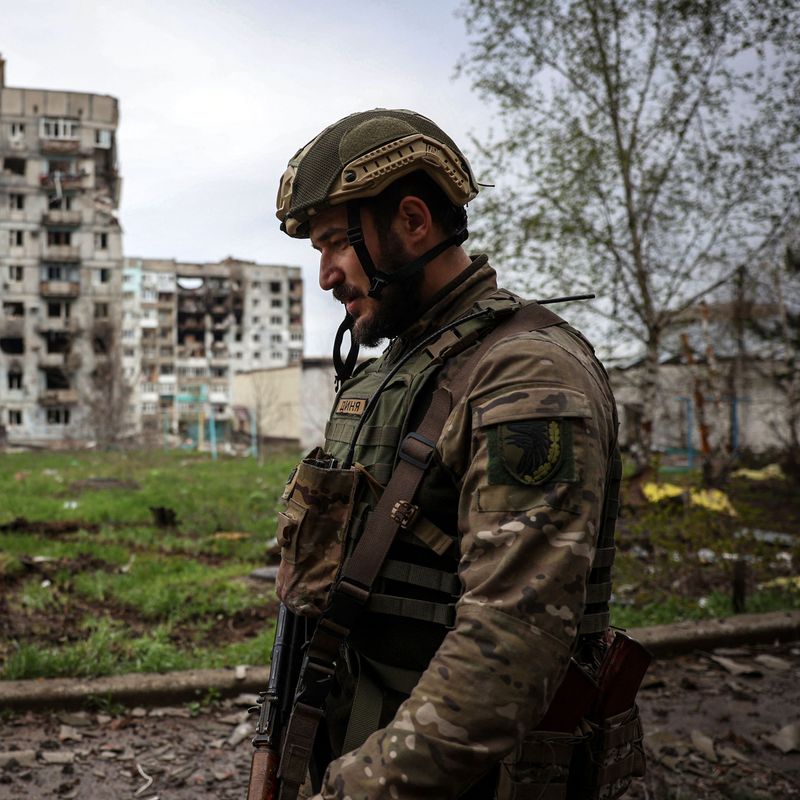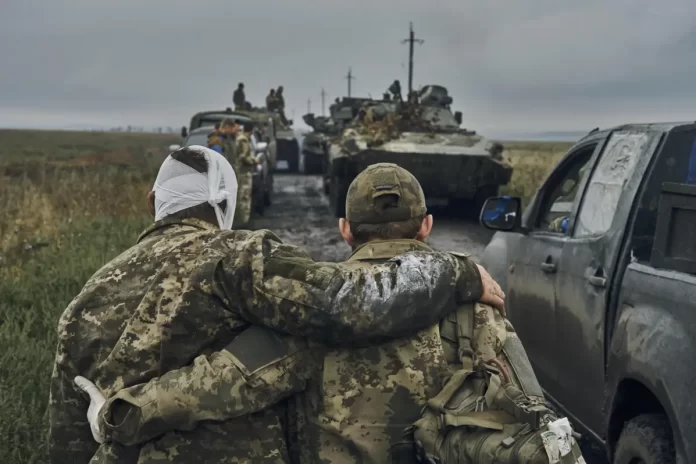Whether it is acknowledged or not, Ukraine and the West are in the process of learning a very hard but essential lesson about the inner machinations and mindset of the Russian Empire.
An authoritarian dictatorship conceives of its history, makes its decisions and judges the success of its imperial ambitions in terms of generations. Democracies, on the other hand, and by their very nature, make decisions within the framework of electoral timelines, in response to vigorous public debate and political opportunism.
And herein is the lesson, dictatorships can wait. Time is on their side.They can wait for their enemies to give up, or to grow tired, to forget. They can wait and work towards creating a state of confusion or compromise in the understanding of core values. They are under no internal pressure and patiently wait it out till their competitors’ initial principled resolve dissipates.
Democracies must make, and continue to make their values-based case in the public square.
The war that Russia instigated against Ukraine is a conflict regarding the type of societal orders each side has chosen to pursue and fight for.
Putin’s dictatorship does not take into consideration the pressures of its civil society. In essence, Putin has eliminated the effects of public discourse in the formation of public policy regarding the war by destroying civil society and crushing public dissent. He’s done this by fear and intimidation, forcing Russia’s civil society into exile. He controls the media and the information space, acting on the assumptions of a Communist apparatchik, that he once was and that the central government has a ‘monopoly on the truth’.
There is no ‘truthful’ discourse of the war in Russian society. Citizens cannot doubt the assumptions for which this war has been waged because they would undermine the myth of the ‘Russky Mir’ (Russian World), or put another way, transgress against the party line. Any deviance is punished. The fates of Boris Nemtsov and Yevgeny Prigozhin are cases in point.
Both the condemnation and ongoing critique of Russia’s attack on Ukraine have been made from a perspective of respect for human dignity and the rule of law. This vociferous critique was quite unequivocal at the beginning of the war and must not change. The basic facts as to why the West is helping Ukraine fight have not changed. If anything, the nature of Russian imperialism has been even further revealed.
But as the slog of Ukraine’s counteroffensive remains slow and without immediate ‘gratification’ or glorious fan-fare, the West’s determination in support of Ukraine must remain steadfast and the potential for this resolve must not be undermined.
Russian authoritarian dictatorship can and will wait. They wait for the dissipation of supportive nations who believe in a rules-based international order and the fundamental truth contained in the respect for human dignity.

Ukraine, after over one and half years of fighting, has quietly fallen away from the front pages of the Western press and its plight “ordinary”, largely because of a lack of new storylines and the West’ expectation of a war resolution that it still cannot envision in the context of democratic time.
Such thinking plays into Russia’s hand. Their objective is to stall the thinking about the war and prevent new narratives from developing. Again, remember, dictatorships think in generations and with clearly defined objectives of empire thinking. And like the Russian artillery, their purpose is to slowly destroy their targets by attrition, be they civilian, cultural, or economic, making it seem that their aggression and the committing of war crimes is ordinary and mundane.
The way Ukraine’s Western partners can prevent this sense of ‘ordinariness’ from hardening in the public mind is not to ‘limit’ the discussion and meaning of the war, but to expand the understanding of the war amongst their publics.
For example, why is it that there is no public discussion and definition of ‘victory’ in this conflict?
What are the legal ramifications and response to the Russian aggression against Ukraine in international forums?
What further economic sanctions could be imposed on the Russian Federation? Moreover, how can Moscow be isolated for their immoral behavior and crimes against Ukraine?
How will reparations be made by Russia for the damages it has caused in its bombing of Ukraine’s civil infrastructure? Will the Russian leadership be held legally accountable and take responsibility for its war crimes in Ukraine?
And what of the moral questions and their implications on the psychology of a war-torn nation?
What are the geo-political implications of Ukraine’s fight against remaining in Russia’s ‘sphere of influence’?
Ukraine’s Western partners must expand the case against Russia. They must take greater advantage within the “information space” to undermine Russia’s monolithic definition and framework of generational empire building. Ukrainians and the West have the winning argument.
The difference between an authoritarian dictatorship and democracies is not only a question of how time and history is understood. But it is also taking advantage of the opportunity to explain and understand the nature of each system and then how each generation is defined by its fight. It takes time to defeat a dictatorship.







